News
Fuel scarcity: Suppliers shun NNPC over $6 billion PMS debts

From fresh facts that came to light yesterday, the current nationwide fuel scarcity is accentuated by the sum of $6 billion owed suppliers by the Nigeria National Petroleum Company Limited (NNPCL).
The supply agents have become reluctant about importing premium motor spirit (PMS) for the NNPCL.
As a result, the oil firm has been rationing stock and prevailing on major suppliers not to cut off supply.
Five vessels meant for Nigeria have refused to discharge fuel to NNPCL due to fear of payment, one of the major suppliers told THE NATION yesterday.
But the Chief Corporate Communications Officer of NNPC Limited, Mr. Olufemi Soneye, assured that the oil firm was alive to its responsibility.
He said in the oil trading business, transactions are often carried out on credit with intermittent outstanding balances.
Sources said that last month, the Federal Government bailed out NNPCL with about $300 million to make fuel available in the country.
The intervention of the government was, however, rated as a temporary relief.
Reports by REUTERS, an international news agency, had indicated that Afreximbank disbursed $925 million to NNPCL as part of a syndicated $3.3 billion crude oil-backed prepayment facility.
The uncertainty over the payment of the $6 billion, it was learnt, has made most suppliers “hesitant” in bringing in products.
It was gathered that NNPCL “solely imports the product using supply agents.”
As at yesterday, findings confirmed that the national oil firm was “weighed down by the over $6 billion piled up liabilities.”
The NNPC is “struggling to supply dealers due to shortage of product at its tanks, “an authoritative source said yesterday.
“Bulk sales of ships and trucks to depot owners have slowed down in the last five days due to shortage of supply.
“No bulk sales has happened since Tuesday, which heightened the scarcity in the downstream sector, ” the source said.
An oil chief who is in the know of the goings-on in the industry linked the fuel queues being experienced in the last eight weeks” largely to the reduction in supply of products by suppliers who were being owed.”
“I was aware that at some point in mid-August the Federal Government had to come in by giving money to NNPC to defray some of the outstanding liabilities and boost confidence of the suppliers to continue.
“However, what was paid was about $300 million which only helped in getting reprieve for about a week before the queues fully returned,” he said.
Another informed source said: “Suppliers of petrol are hesitant about supplying new product to the Nigeria National Petroleum Company Limited (NNPCL) due to piling debts.
“At present at least five vessels originally intended for supply to Nigeria have refused to discharge fuel to NNPC due to fear of payment.
“The situation has increased pressure on the petroleum company which has now resorted to rationing the stock it has while appealing to its long-term suppliers not to halt supplies .
Why and how NNPCL incurred $6 billion liabilities
In a report, Reuters said: “Nigeria’s debt to gasoline suppliers has surpassed $6 billion – doubling since early April – as state oil firm NNPC struggles to cover the gap between fixed pump prices and international fuel costs, under rising cost of living.
The agency said the company has still not paid for some January imports, and the late payments amount to $4 billion to $5 billion.
Under contract terms, NNPC is meant to pay within 90 days of delivery.
“The only reason traders are putting up with it is the $250,000 a month (per cargo) for late payment compensation,” one industry source said.
Reuters said: “At least two suppliers already stopped participating in recent tenders after hitting self-imposed debt exposure limits to Nigeria, the sources said, meaning they will not send more gasoline until they receive payments.
“Nigeria’s tenders to buy gasoline in June and July were smaller, traders said. NNPC will import via tender about 850,000 tonnes in July, two of the sources said, down from the typical 1 million tonnes in previous months.”
More challenges and solution(s)
Recently, the Minister of State for Petroleum (Oil), Senator Heineken Lokpobiri, said it was imperative for the NNPC Limited to adjust its pricing strategy for imported fuel to curb smuggling.
He also admitted that NNPC Limited had financial constraints in maintaining and rebuilding Nigeria’s ageing pipelines.
He said the weak pipelines are susceptible to vandalism.
Lokpobiri, who spoke at the 2024 Energy and Labour Summit in Abuja, said selling imported fuel below the landing cost is a key factor fueling smuggling activities.
He said: “If NNPC imports PMS and sells to marketers at perhaps N600 or below, there’s no way that smuggling can stop.
“When smugglers are taking the products outside the country, even if you put all the policemen on the road, they are Nigerians; you and I know the answer.”
“These pipelines, some dating back to the 1960s and 1970s, are highly susceptible to vandalism and crude oil theft, which significantly impacts the nation’s oil revenue.
“The old, corroded pipelines, some of which date back to the 1960s and 1970s, are easily vandalized,” Lokpobiri explained.
“The reason why pipeline vandalism is very easy to do is because the pipelines have all expired; they are completely corroded.
“So, anybody can just go and tap it, and the thing is busted. The challenge lies in transporting it to terminals due to the deteriorated state of the pipelines.”
NNPC reacts
NNPCL’s Soneye could not immediately confirm the exact liabilities to the suppliers.
He, however, said in oil trading, transactions on credit were normal.
He said: “In the oil trading business, transactions are often carried out on credit. So, it is normal to have outstanding balances at certain times.
“Additionally, through our subsidiary, NNPC Trading, we maintain open trade credit lines with several traders. I will need some time to provide you with the exact amount.”
News
How custodians of law turned to lawbreakers – Iche

Comrade Prince Saviour Iche expresses concern over the period of suspension given to Sen. Natasha Akpoti-Uduaghan by the approval of the Senate President Godswill Akpabio; says the Senate has misrepresented the law they make if allegations such as sexual harassment can be suppressed rather than addressed.
Iche said he is particularly disappointed at the activities of some of the elected lawmakers. That a verbal confrontation from Natasha, who felt wronged by the indecent actions of the senate president towards her, has received backlash from her colleagues, who should have been in the best position to propose an inquest into the sexual harassment allegations.
Iche said,
“I have a big concern about the activities of the acclaimed lawmakers; some members of the House of Senate are not upright lawmakers but rather should be named lawbreakers; they ought to have known that there is a court injunction restricting the Senate from probing Natasha further but chose to ignore the law they must abide by, bending the laws to suit their purpose.”
“A committee was set up to address the situation within the Senate; out of 32 lawmakers, 13 of them didn’t sign authorization for suspension, and concerns have been raised about the apparent rush by the Senate Committee on Ethics, Code of Conduct, and Public Petitions, chaired by Senator Neda Imaseun (LP, Edo South), in handling the case.”
“Meanwhile, the committee had initially scheduled the hearing for Tuesday, March 11, only for it to be abruptly rescheduled. Why didn’t the committee wait? The absence of ranking senators from the process shows we knew where it was heading,” as said by a senator who chose to remain anonymous. He said a few others went behind the other 31 prominent senators and dishonorably signed and imposed a 6-month suspension on Natasha with seized salaries and other privileges.”
“If our laws are binding, the senators who authorized that suspension would have been under investigation and arrest by now because this is a slap on the judiciary; the senators, instead of maintaining the laws of the land, are rather breaking the law.”
“When Natasha was ready with her petition, she submitted the petition to the senate president. If Nigeria is a country where things are done rightly, Akpabio will step aside for a neutral body to preside over Natasha’s application or petition, not the alleged (Godswill Akpabio). Is Akpabio now the judge over his own issue? What a government!!!!”
“Still on the issue of suspension, why was she given a six-month suspension with salary and privileges withdrawn? What’s her offense? As a wife and mother, will Natasha lay allegations without an iota of truth? Remember that this same Akpabio had a case of sexual harassment in 2020 by someone else. The senate president and his cohort of lawbreakers in the senate should resign and let Natasha be. Natasha’s case should never be swept under the carpet, for there is always Karma.”
“It is important that the human rights body challenge the abnormality in the Senate that we’ve seen so far. We know what our women go through in their primary place of assignments, especially in the government and educational sectors. Not addressing Natasha’s issue appropriately simply means women have no immunity at all and are susceptible to underhanded treatment. Natasha’s punishment has become a reference point to further silence women. No! We have to challenge it.”
“What have Nigerians benefitted from the essence of appointing senators? Only a few of these senators live up to standard in developing their communities; when anti-people’s policies created by the government set in, the senators will not challenge these policies head-on; they seldom check and balance the government’s excesses.”
In conclusion, Iche said as a human rights advocate, it is an error to see one’s rights trampled upon without being their voice. He said if truly this matter with Natasha and Akpabio is suppressed, it means that the Nigerian judiciary is now silencing the voice of Nigerian women. It’s high time all human rights groups come out in unison to challenge the lawbreakers in the Senate.
News
Diasporans president seeks Natasha’s immediate reinstatement
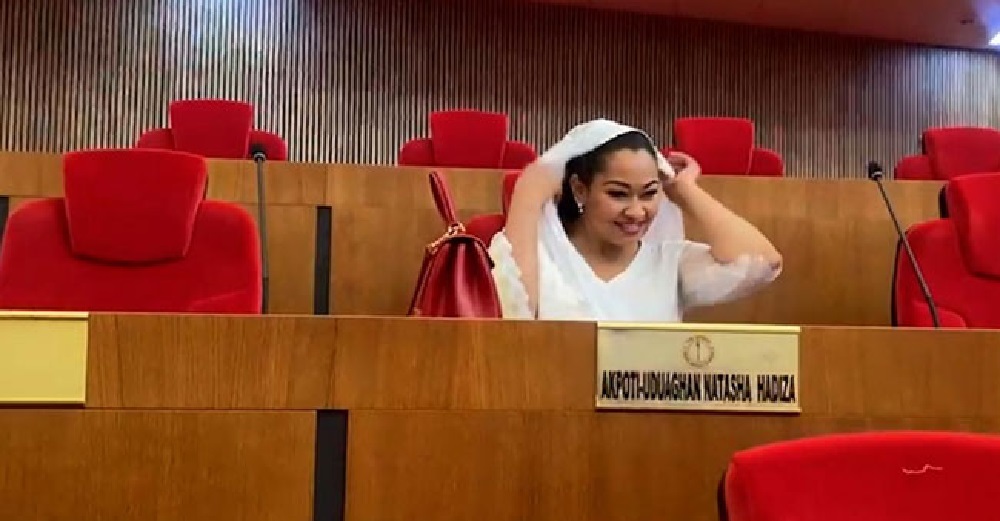
President, Nigerians in Diaspora Chamber of Commerce (NiDCC), Ms Patience Ndidi Key, has called for the immediate reinstatement of the Senator representing Kogi Central in the National Assembly, Natasha Akpoti-Uduaghan.
Key, who said this in a statement on Sunday in Abuja, also called for a fair investigation into Akpoti-Uduaghan’s allegations of sexual harassment against the Senate President, Senator Godswill Akpabio.
The NiDCC boss, however,, urged the Senate to lift Akpoti-Uduaghan’s suspension while calling for the establishment of an independent panel to investigate the sexual harassment allegations thoroughly and impartially.
Tribune Online reports that the Senate Ethics, Privileges, and Public Petitions Committee, on March 6, 2025, recommended Akpoti-Uduaghan’s suspension for six months.
Key said the unfolding drama in the Senate surrounding Akpoti-Uduaghan’s allegations once again exposed the dysfunction, self-serving agenda, and lack of integrity within the legislative arm of the government, saying her (Akpoti-Uduaghan) suspension raised fundamental concerns about justice, gender equity, due process, and the abuse of power in our democracy.
“This development raises serious concerns about the future of women in Nigerian politics. If a sitting senator can be suspended and silenced for speaking up, what hope is there for ordinary Nigerian women who suffer harassment and intimidation daily?
“Sexual harassment is a serious crime, and it must never be trivialized, ignored, or used as a political tool. However, timing matters. Victims of harassment must speak up immediately and follow due process to ensure that the law takes its course.
“Delayed allegations weaken the credibility of the claim and give room for political manipulation. Silence empowers abusers. If any Nigerian, male or female, is subjected to harassment, they must report it immediately, demand justice, and ensure accountability,” the NiDCC president submitted.
Key said the Senate, as a democratic institution, should not be seen using procedural technicalities to suppress opposition and silence dissenting voices while advising the upper chamber to rather prioritize addressing challenges in the health sector, youth unemployment, and economic crisis facing the country.
“This entire episode proves that Nigeria’s political system needs a radical transformation. The current disciplinary mechanisms must be reviewed to prevent abuse of power and ensure equal treatment of all members, regardless of their gender or political stance.
“I also call for a serious commitment to gender equity in politics. Nigeria needs more women in governance. The silencing of female voices in leadership must end. Women in politics must be protected, empowered, and given the respect they deserve.
“The Senate must redirect its focus toward serving the Nigerian people by passing laws that solve real problems, not engaging in personal vendettas.”
She urged Nigerians to hold their senators accountable and demand transparency, justice, and leadership, calling on victims of harassment to speak up always.
News
Rivers lawmaker tells Fubara to remain on his lane over invitation
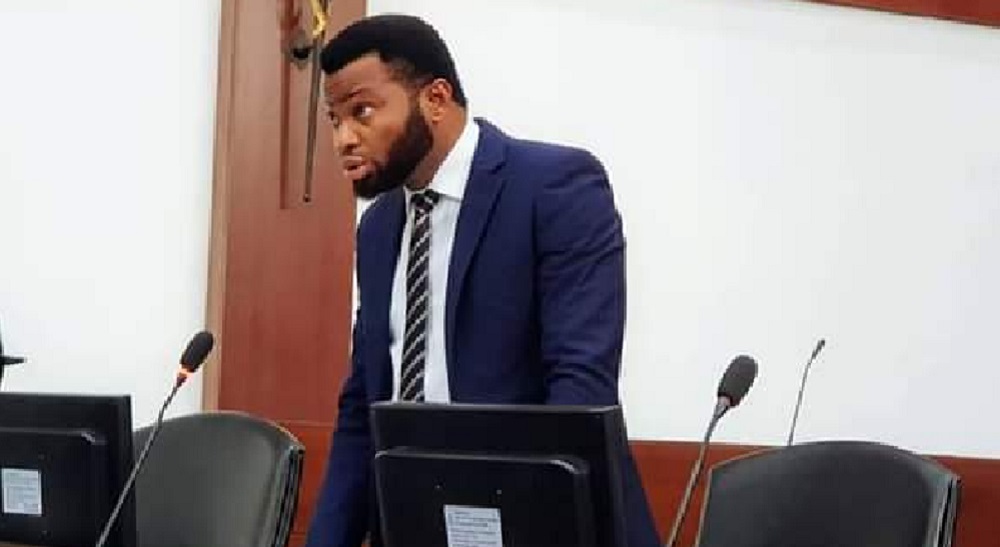
A member of the Rivers State House of Assembly, Lolo Isaiah Opuende, has poopoohed an invitation from Governor Siminialayi Fubara for a crucial meeting at Government House, Port Harcourt.
In a trending video, Opuende stated that it was time for the governor to “dey his dey” (be on his own) while the lawmakers would do the same.
Representing Akuku-Toru Constituency 2, Opuende recalled that when the political crisis began, their principal had warned that a time would come for both sides to go their separate ways.
He also questioned the mode of invitation transmission, arguing that it was not feasible for lawmakers to honor the governor’s request.
“How can you write a letter for the House of Assembly and put it on social media and expect us to come. The governor should write us the proper way”, he said.
-
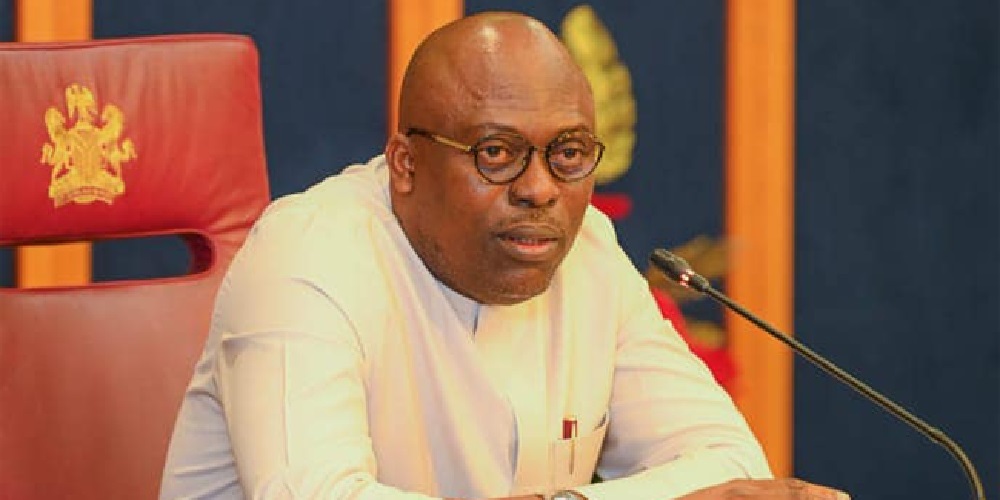
 News15 hours ago
News15 hours agoRivers crisis: Fubara finally bows, invites authentic lawmakers to meeting, offers to pay all outstanding allowances
-

 News14 hours ago
News14 hours agoJapa Bad side: “ How I Lost My Husband the Day We Arrived In Canada”
-
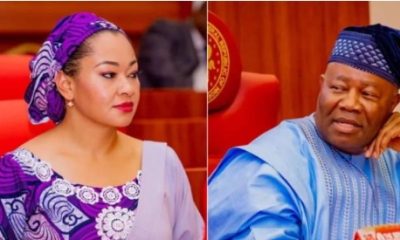
 News12 hours ago
News12 hours agoNatasha: “You Can’t Be Master In Judgment Over Your Case-Ex-First Lady Bombs Akpabio
-

 News21 hours ago
News21 hours agoPastor Adeboye narrates how he collapsed in Ilesha
-

 News14 hours ago
News14 hours agoBREAKING: Miyetti Allah leader shot dead by unidentified gunmen
-

 News15 hours ago
News15 hours agoRivers Ijaw group cautions INC over calls to perpetuate violence
-
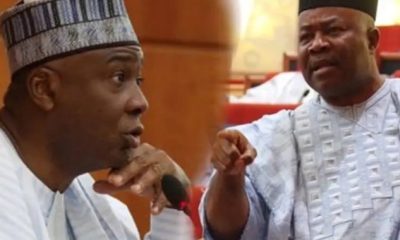
 News10 hours ago
News10 hours agoSaraki to Akpabio: Do not trivialize call for due process in Senate
-
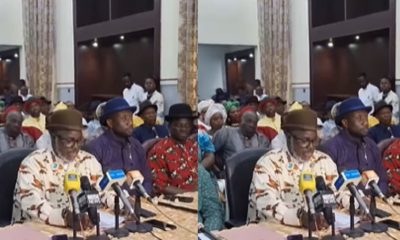
 News5 hours ago
News5 hours agoVIDEO: WATCH moment RIPCO leaders urge INC to shun violence over Rivers crisis






